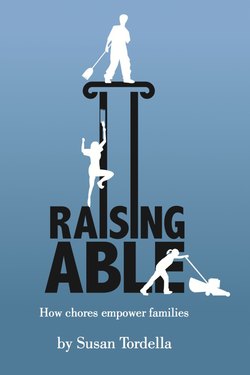Читать книгу Raising Able - Susan Tordella - Страница 27
На сайте Литреса книга снята с продажи.
Chores teach lifelong habits
ОглавлениеBeing summer ice princess taught me a work ethic I still rely on today.
1.Making ice at home saves money. My parents avoided buying anything that could be made at home. For example, buying a $2.50 cup of coffee 20 times a month adds up to a $600 annual expense, so we brew coffee at home.
2.Plan to make ice before we needed it. My family complained if we ran out of ice. I learned to plan, manage time and inventory so we rarely ran out. The project management skills I gained made deadlines easy to meet in every job I’ve had.
3.Delegate. An effective project manager finds dependable workers. Notice my father asked me to be ice princess, not one of my scurrilous siblings. When in management positions, I can spot good workers by their work habits and attitude.
4.Invest in good equipment. I hated those metal ice trays and longed for plastic trays. To this day, I love good kitchen tools.
5.Children want responsibility. Children, especially under age 11, strive to please their parents, take pride in contributing to the family, and develop self-esteem from managing a task. Children will rise – or fall – to parental expectations. I was trusted to manage the ice supply and given space to experience the consequence of running out of ice. I hated to let everyone down.
6.Take pride in contributing to the common good. I felt good about myself because my family enjoyed the ice. It motivated me to keep making ice and view the job positively. The same can be said of tasks I perform today for family and friends.
7.You don’t always have to be recognized or paid. Being of service to others in the world without expecting anything in return is a guaranteed way to make friends. Following that edict has brought me some of my greatest joys in life. Thanks, Dad.
When children have regular responsibilities around the house, the benefits reverberate for a lifetime. They don’t have to be big responsibilities, take a lot of time or be done frequently. They must be their responsibilities, that don’t get done unless they do them.
When children do jobs for the common good, they can experience being part of a community. Even though children may say and act as if they don’t want to contribute to the running of the household, everyone craves the feeling of feeling important, needed by and connected to others.
